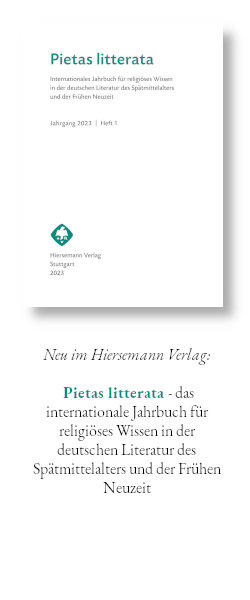Ut avis in cavea – eine unbekannte Verssatire gegen die Mendikanten aus dem 13. Jahrhundert
Erstedition und Kommentar
DOI:
https://doi.org/10.36191/mjb/2020-55-2-1Abstract
The codex Paris, Bibliotheque nationale de France, Ms. latin 9376 contains some parchment folios that originally were part of Ms. latin 11867. Written in late thirteenth-century England, Ms. latin 11867 preserves one of the most important collections of Latin letters from the 12th and earlier 13th centuries. Among the letters we also find numerous poems, often satirical verses directed against the depravity of prelates, clerics, and monks. Hitherto unknown is an anonymous satire belonging to the membrum disiectum in Ms. latin 9376,whose incipit reads: Ut avis in cavea. Its text consists of 17 goliardic stanzas, wherein the speaker laments religious hypocrisy, especially those of Franciscans and Dominicans whom he accuses of gluttony, public preaching, and contacts with ill-reputed women. This paper provides a first critical edition of Ut avis in cavea, the accompanying examination of the text reveals that the anonymous satirist was inspired by Mundus finem properans, an anti-mendicant poem preserved in the famous Carmina Burana collection, from which hecites four stanzas.
Keywords: satire, edition, Carmina Burana, anti-mendicant poetry


